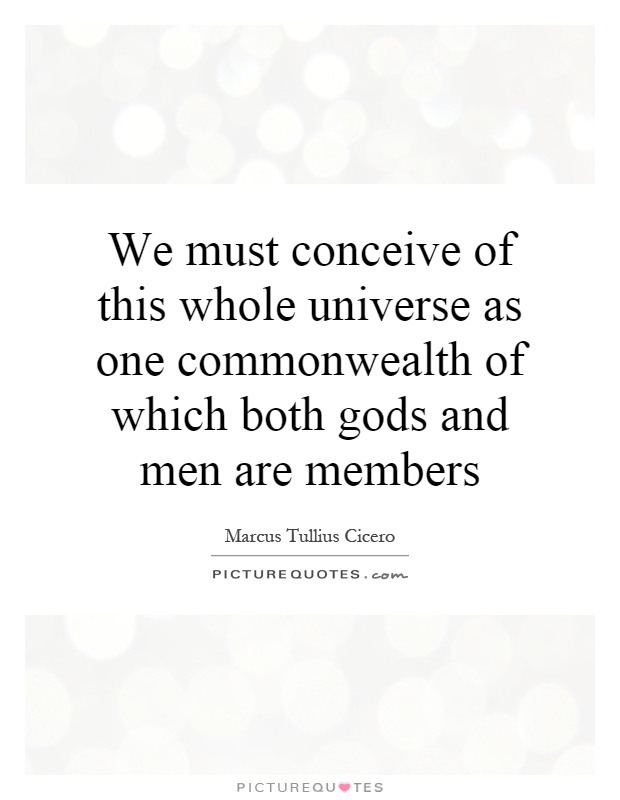We must conceive of this whole universe as one commonwealth of which both gods and men are members

We must conceive of this whole universe as one commonwealth of which both gods and men are members
Marcus Tullius Cicero, a Roman philosopher, politician, and orator, believed in the interconnectedness of all beings in the universe. His statement, "We must conceive of this whole universe as one commonwealth of which both gods and men are members," reflects his belief in the unity and harmony that exists between the divine and mortal realms.Cicero's philosophy was deeply rooted in Stoicism, a school of thought that emphasized the importance of living in accordance with nature and reason. For Cicero, this meant recognizing the inherent interconnectedness of all beings in the universe and understanding that both gods and men are integral parts of a larger cosmic order.
In Cicero's view, the universe is like a vast commonwealth, a community in which all beings have a role to play and a responsibility to uphold. Just as citizens in a commonwealth have duties to one another and to the state, so too do gods and men have responsibilities to each other and to the universe as a whole.
Cicero believed that by recognizing our place in the larger cosmic order and fulfilling our duties as members of this universal commonwealth, we can achieve a sense of harmony and balance in our lives. By living in accordance with nature and reason, we can cultivate virtues such as wisdom, courage, and justice, and strive to become better individuals and members of society.
For Cicero, the idea of a universal commonwealth was not just a philosophical concept, but a practical guide for living a virtuous and meaningful life. By recognizing our interconnectedness with all beings in the universe, we can cultivate a sense of empathy, compassion, and respect for others, and work towards creating a more harmonious and just society.












 Friendship Quotes
Friendship Quotes Love Quotes
Love Quotes Life Quotes
Life Quotes Funny Quotes
Funny Quotes Motivational Quotes
Motivational Quotes Inspirational Quotes
Inspirational Quotes